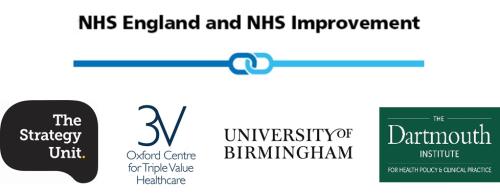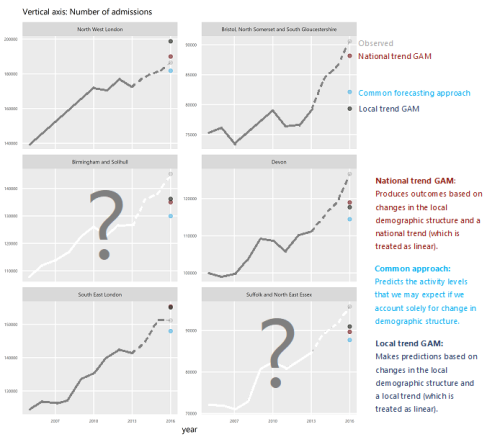
Advancing the analytical capability of the NHS and its ICS partners
The Strategy Unit were asked by the Strategy and Development Team in the Directorate of the Chief Data and Analytics Officer, NHSE/I, to make recommendations for advancing analytical capability across the health and care workforce.

Securing the future of domiciliary care
The Strategy Unit is embarking on an exciting project with WM ADASS, the Association of Directors of Adult Social Care Services in the West Midlands to explore the challenges facing domiciliary care and the opportunities that exist to transform and improve the service.

Inequities in children and young people’s mental health services
Good mental health during early years and childhood has a great bearing on health throughout life.

How do we develop analysts as leaders? Early thoughts from our ‘leadership for analysts’ programme
“What is an analyst?”

How can analysis help clinicians improve services? Interview with Dr Anna Lock
Dr Anna Lock, Justine Wiltshire and Lucy Hawkins reflect on the Strategy Unit's innovative end of life care analysis. How can this work help clinicians to improve services?

A framework for understanding policy change
A new policy, strategic direction or major programme is announced.

Localism and the NHS: a case in four stories
In this blog, Fraser Battye makes the case for localism in the NHS. He tells four short stories. He suggests that these stories highlight an opportunity as the NHS enters a period of reform.
Strategy Unit analysis of air quality highlights inequalities
Poor air quality is the largest environmental risk to public health in the UK and central London has the highest levels of particulate matter and nitrogen dioxide. The Guy’s and St. Thomas’ charity, now operating its programmes under the Impact on Urban Health banner, have committed to 10 years of funding to improve air quality-related health in the residents of South London boroughs of Lambeth and Southwark. The charity commissioned the Strategy Unit to explore the health of several key groups and the factors that most influence health alongside air quality within the area.

Is ‘Integrating Care’ bold enough?
In this blog, Fraser Battye leaves the Strategy Unit’s usual careful and empirical view of the world. He reflects on NHS England and Improvement’s ‘Integrating Care’ paper from the perspective of wider ideological and societal trends. In doing so, he suggests that there is scope for bolder reform – and that localism is the way to go.

What might ‘Integrating Care’ mean for analysts?
In this blog, Fraser Battye looks at NHS England/Improvement’s ‘Integrating Care’ paper. While not looking forward to another NHS re-organisation, he sees a lot that analysts will like. Fraser also notes the potential advantage that the Decision Support Unit model gives systems in the Midlands. What can analysts do to seize these opportunities?

A learning NHS and ‘black box’ analysis aren’t compatible
Data analysis presents a limitless opportunity to improve decision making within the NHS.

Bringing NHS analytics into the 21st Century
A marriage usually needs (at least): a matchmaker, two entities, a (little) money, a proposal and a home.
How can Integrated Care Systems collect and use more ‘person-centred intelligence’?
Working with our partners
Outcomes based commissioning: A framework for local decision making
This local decision-making framework aims to empower systems as they look to design new contracting approaches aimed at improving outcomes.

Midlands Population Health Management Academy
The Midlands Population Health Management Academy was part of a programme of support, commissioned by NHS

How will we know if Integrated Care Systems reduce demand for urgent care?
The implications of a blended payment system are far reaching: Decisions about planned activity levels will determine the total funding envelope for urgent care within a system and will influence the behaviour of healthcare providers and the services they deliver to patients.
Measuring what matters in systems – A call for person-centred intelligence
The Strategy Unit and Ipsos MORI launch guide to implementing Person-Centred Intelligence.
Lessons, Evaluation and Learning from the Dudley MCP
Learning from Dudley MCP
Learning and Development of Problem Solving Techniques
What is innovation?

Tools & templates: Problem structuring
Problem trees and driver diagrams can help you to understand the causes and effects of your problem.